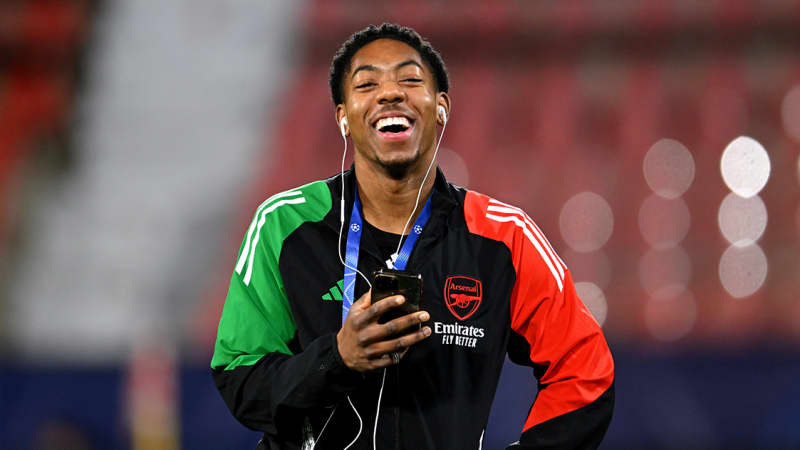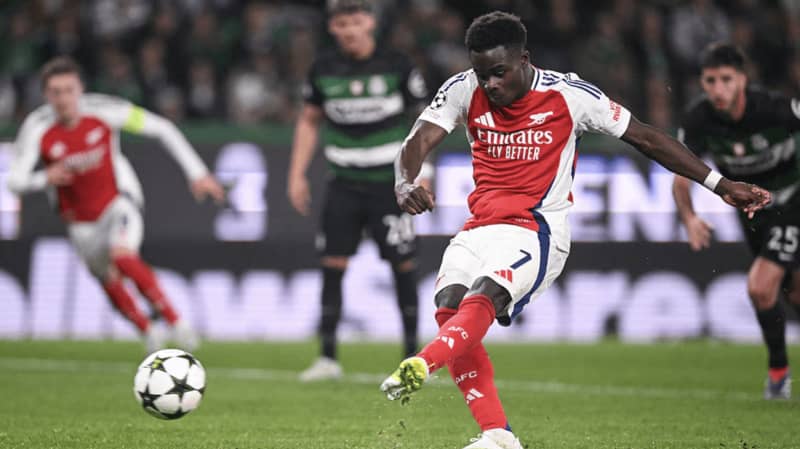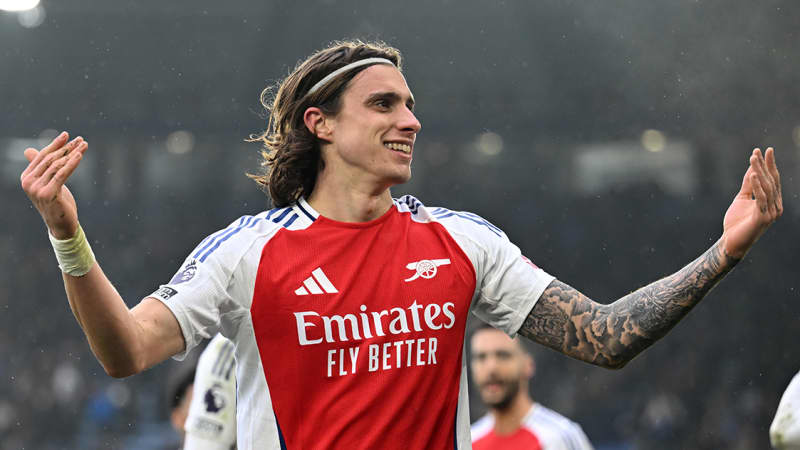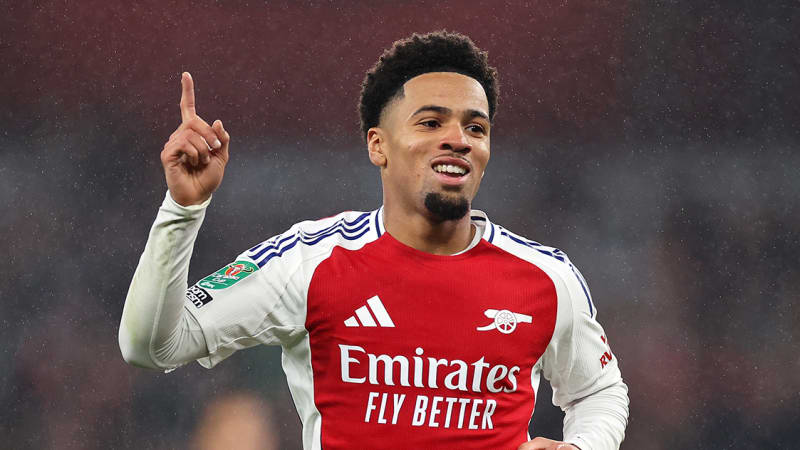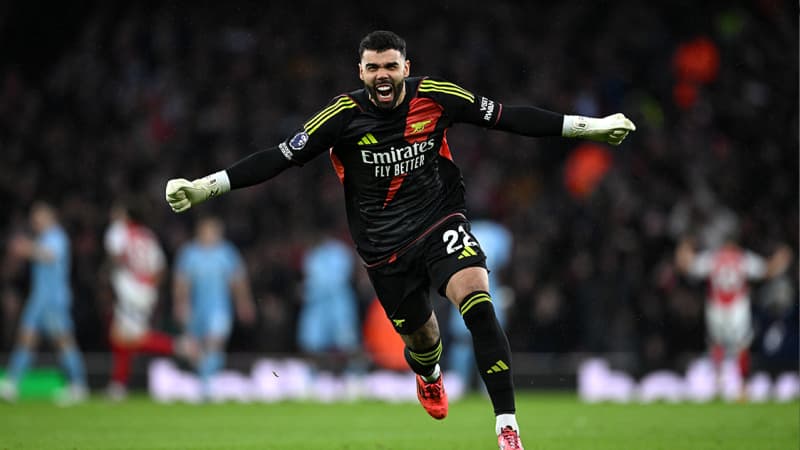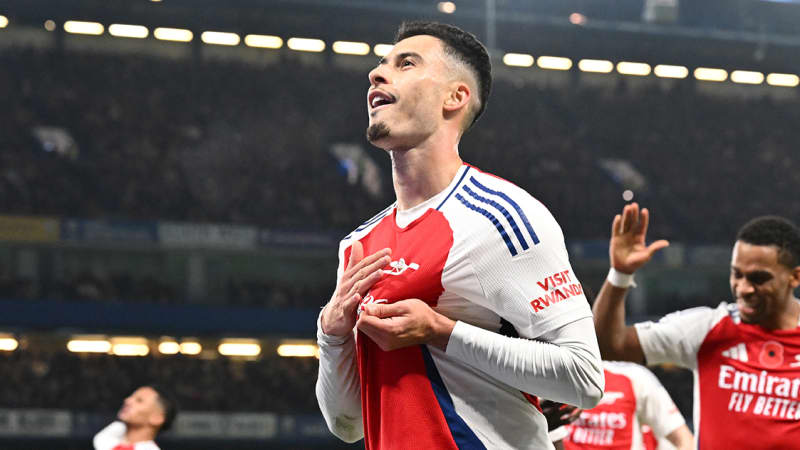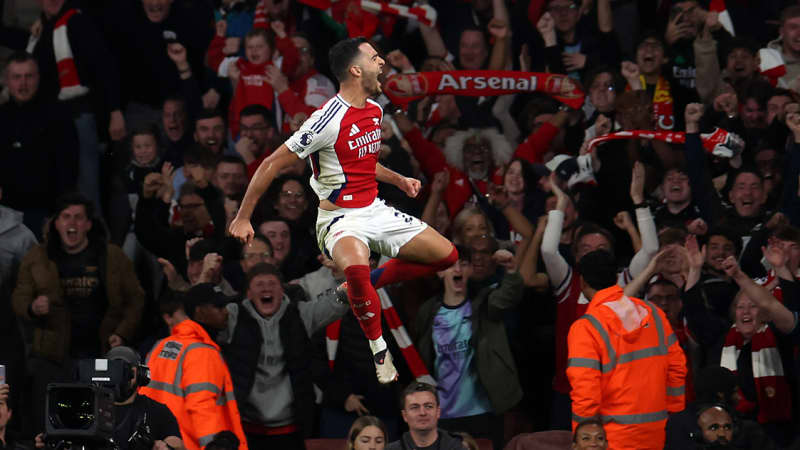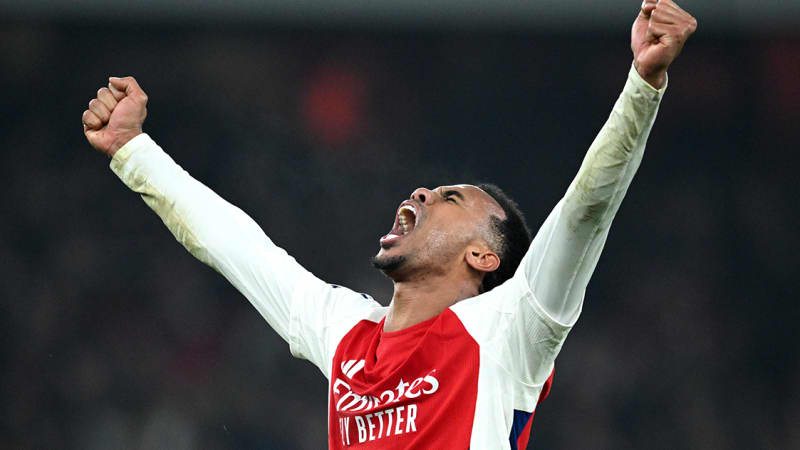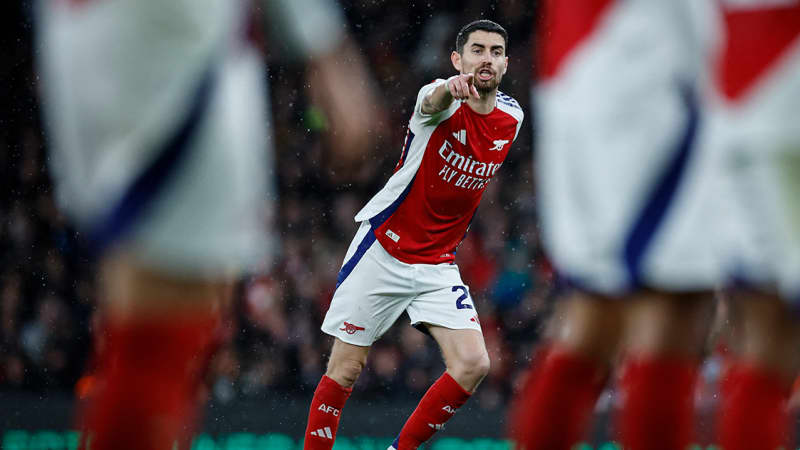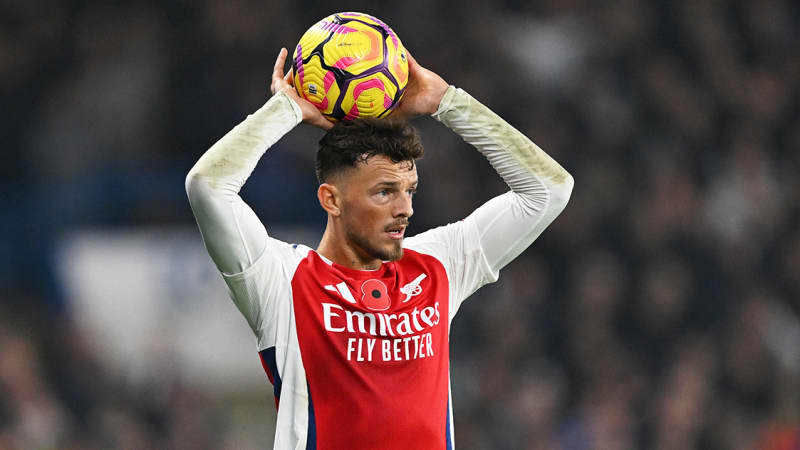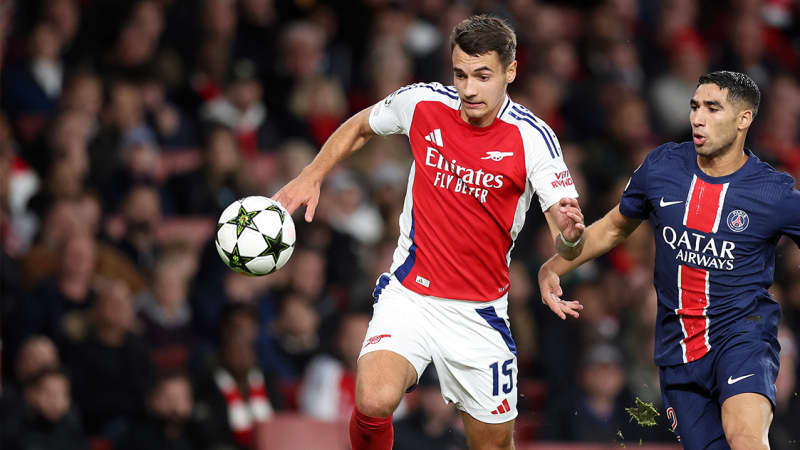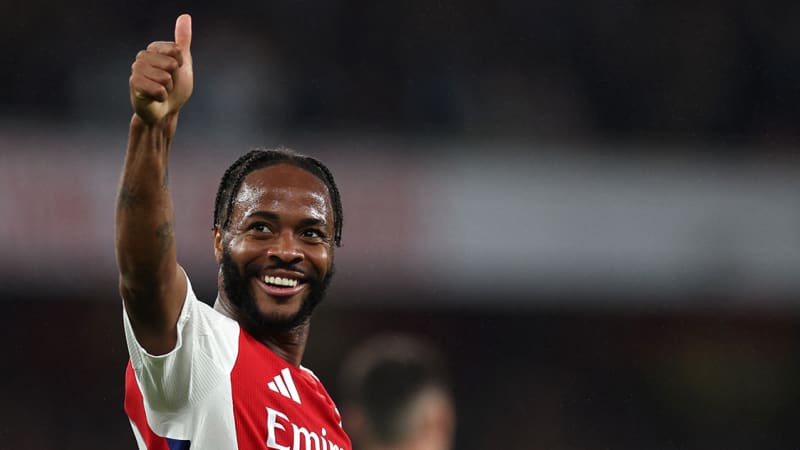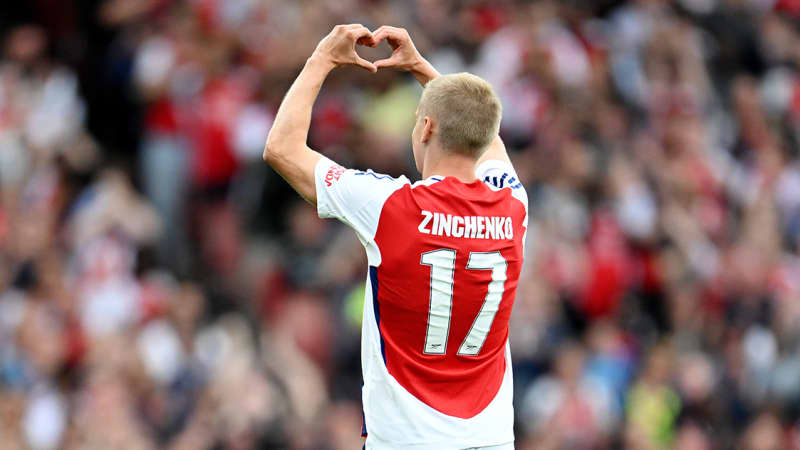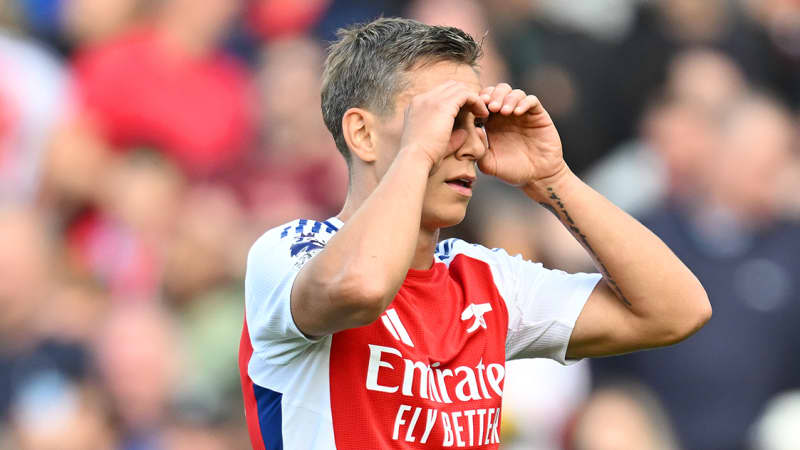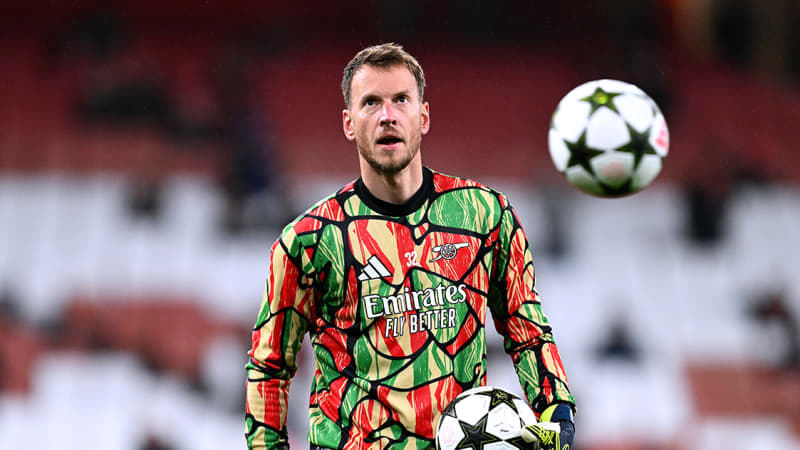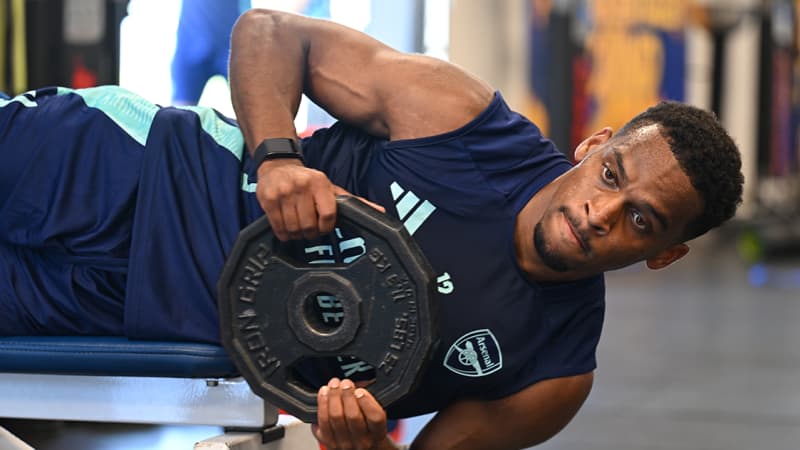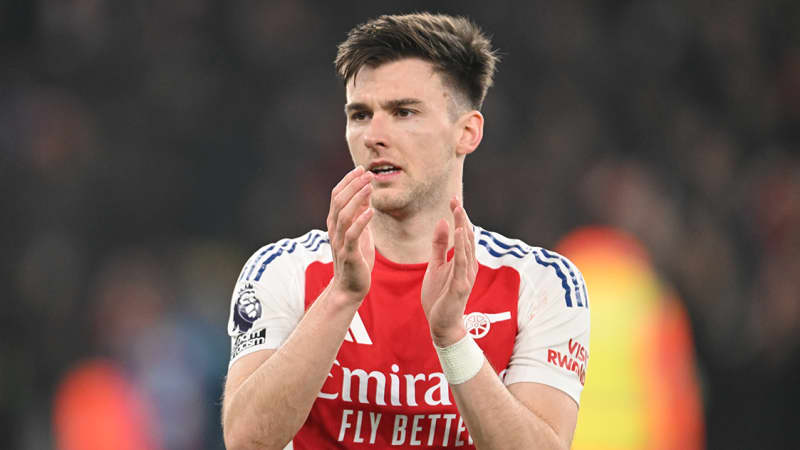Ever-evolving Jesus on never losing his Brazilian style
Our red-hot striker is back amongst the goals, but he reveals that he has always stuck by his principles forged from his early years starring in his homeland
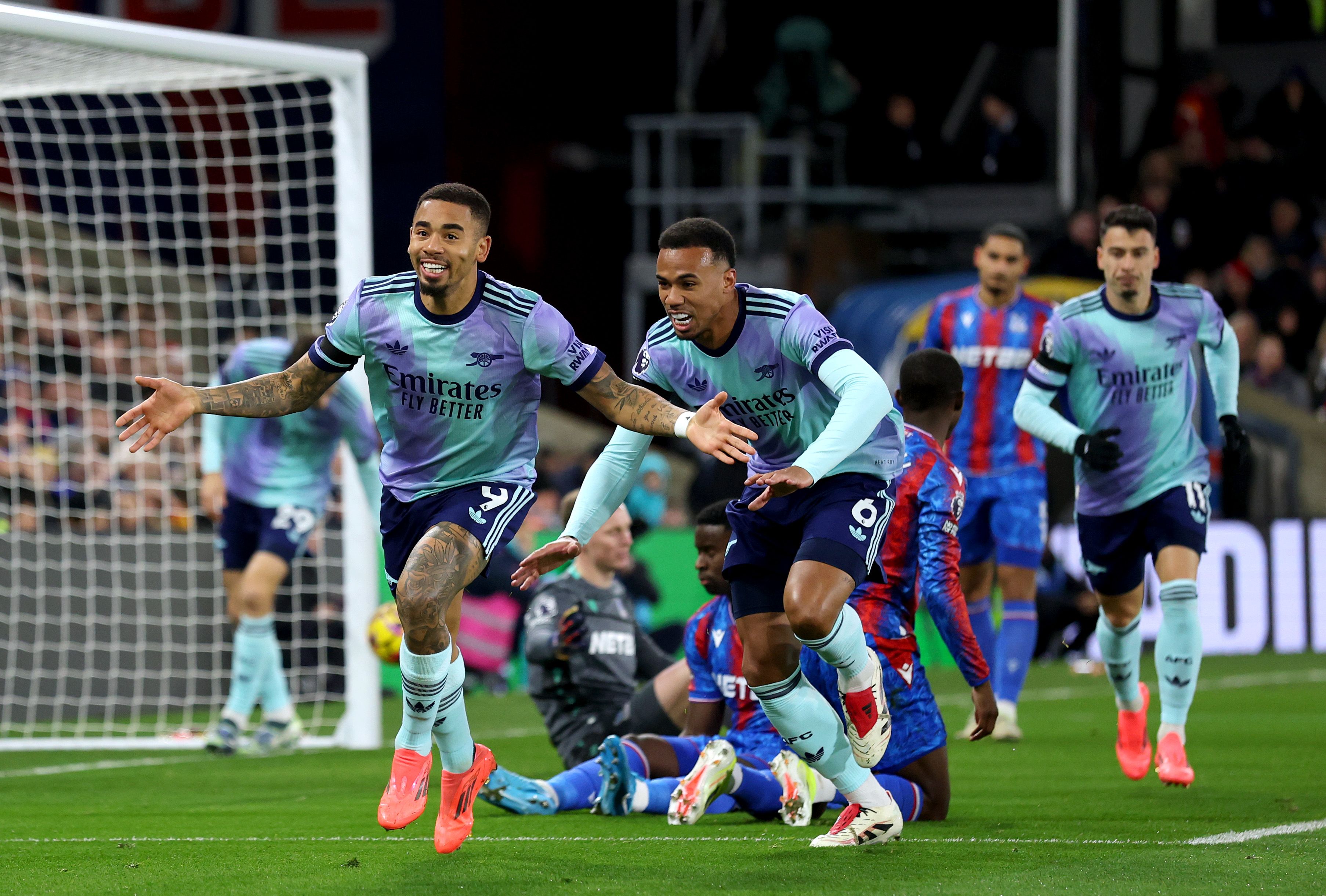

Whatever else Gabriel Jesus has learned in his illustrious playing days so far, he says whenever he is on the pitch he always strives to be true to what helped launch his career.
Gabby has lifted league titles in Brazil and England, as well as win an Olympic gold medal and the Copa America with his national team, and he says the secret of his success has been to always trust his instincts when he has the ball at his feet.
“The biggest lesson I learned is to be myself – all the time,” he says. “Whatever is happening in the game, I need to be myself, to play my game.
“When I was young I didn’t have a lot of coaching. I played for myself with my friends, and that’s what I’ve tried to keep throughout my career. I just try to be me when I’m on the pitch. Sometimes you go away from what you were when you were younger, but 95 per cent of the time I try to be myself,” adds the 27-year-old from Sao Paulo.
“What I mean by that is playing with freedom, and looking to express yourself. Obviously since becoming a professional player, you have more of a structure that you have to follow. But I think I’m the type of player who follows the structure and tactics of the manager, especially off the ball.
"But sometimes it’s more on my instincts. When I recover the ball and I go – that’s me. When I have the ball, I try to do something different. That’s what I mean about being myself.”
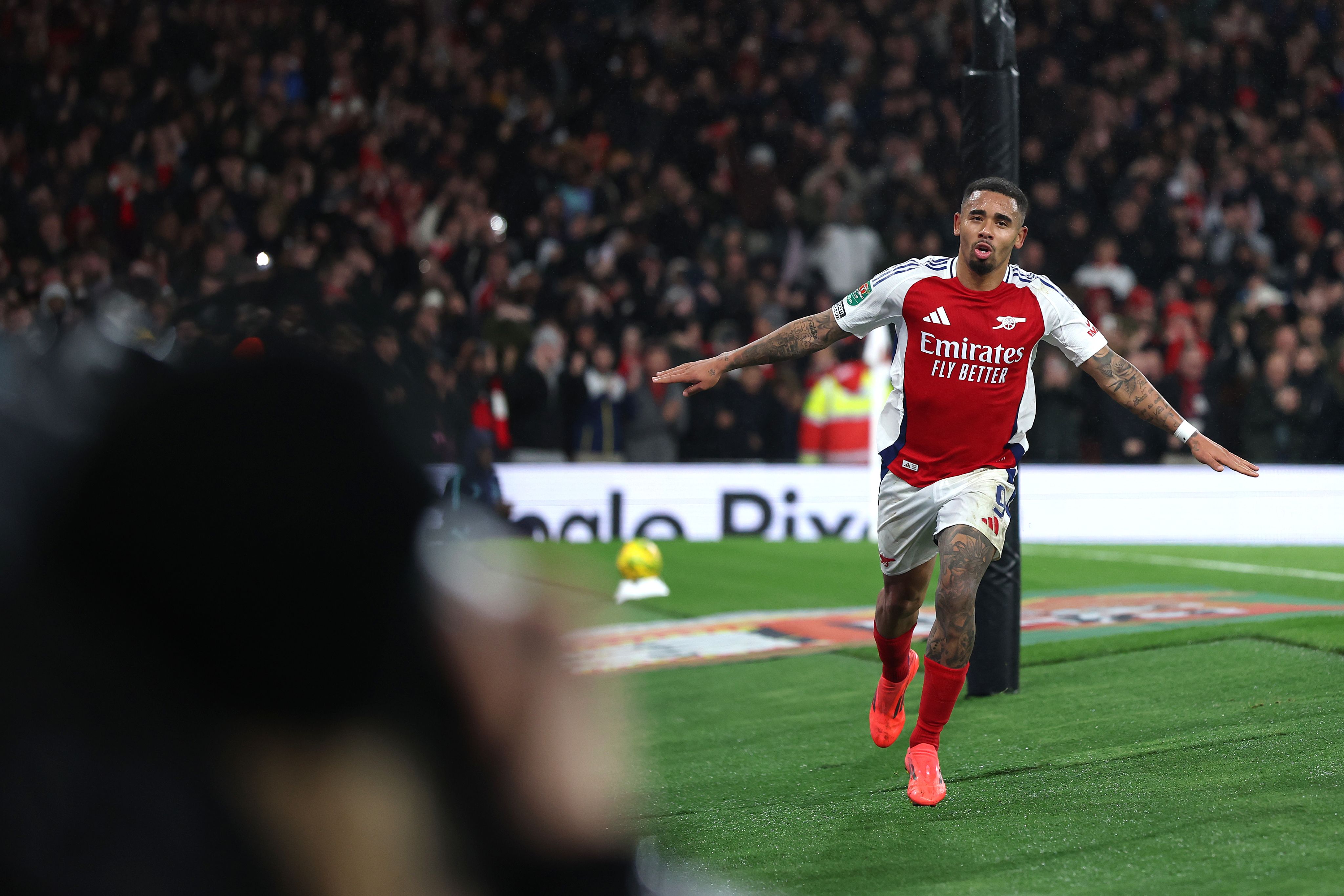
Since bursting through as a prodigious teenage talent with Palmeiras in his home city, Gabby has managed to combine that spirit of street football and natural Brazilian flair with a willingness to learn and adapt to the demands of his team. So does he rely more on his instincts during a match, or on putting into practice what he’s learned during his career?
“I think it’s a little bit of both,” he says. “Sometimes you don’t have to think – just do it. But other times you need to work out what you are going to do in a situation. It’s good to have that balance. It all depends on the situation – are you winning or losing, are you in the final third, are you looking for control or whatever.”
To find out how his playing style has been shaped, we need to go back to his very early days in the sport, when he joined Palmeiras from his small local team Anhanguera.
“I arrived at Palmeiras in 2012 when I was 15,” Gabby explains, “but I didn’t play a lot because it was the end of the year, so I really started in 2013 in their academy. That was the first time I was getting coached at a big club. Before that it was a village club, playing with the older guys in amateur football.
“But at that time, it was more focused on building the player, rather than the tactics side. I’m not sure what it is like now, because I’m not in an academy, but I know back then, we were taught to express yourself and take the ball. That helped me a lot, I enjoyed it a lot, and that’s why I’m here.”
Making that step up to professional football, Gabby says, is when he first had to expand his game to maximise his ability. It was when he showed his potential as a versatile forward, and led to him making his debut for the Brazil national team when he was just 19. He scored twice on his debut, and was Brazil’s top scorer in their World Cup qualifying programme for the 2018 finals, netting seven times in 10 games.
He reflects: “When I came to Palmeiras is when I first saw things I had never seen before – what it meant to be at a big club, fighting for your position, playing more tactical and things like that. At first you just want to play, but soon you realise how much it helps you. At that time, when I was 16, I wasn’t a No9, I played as the second striker. I would go on the left, on the right or run with the striker. Not like a normal No10 either.
"But that time in the academy was very good for me, and when I was 17 I got to the first team and started playing on the left wing. They put me there, and it was good for me. I had never been a No9 – I was used to being more free. But as soon as I went to the national team and played No9 things went very well for me. I got the confidence and played there more. You can see today I can play in two or three different positions, because of those days.”
"The biggest lesson I learned is to be myself – all the time. Whatever is happening in the game, I need to be myself"
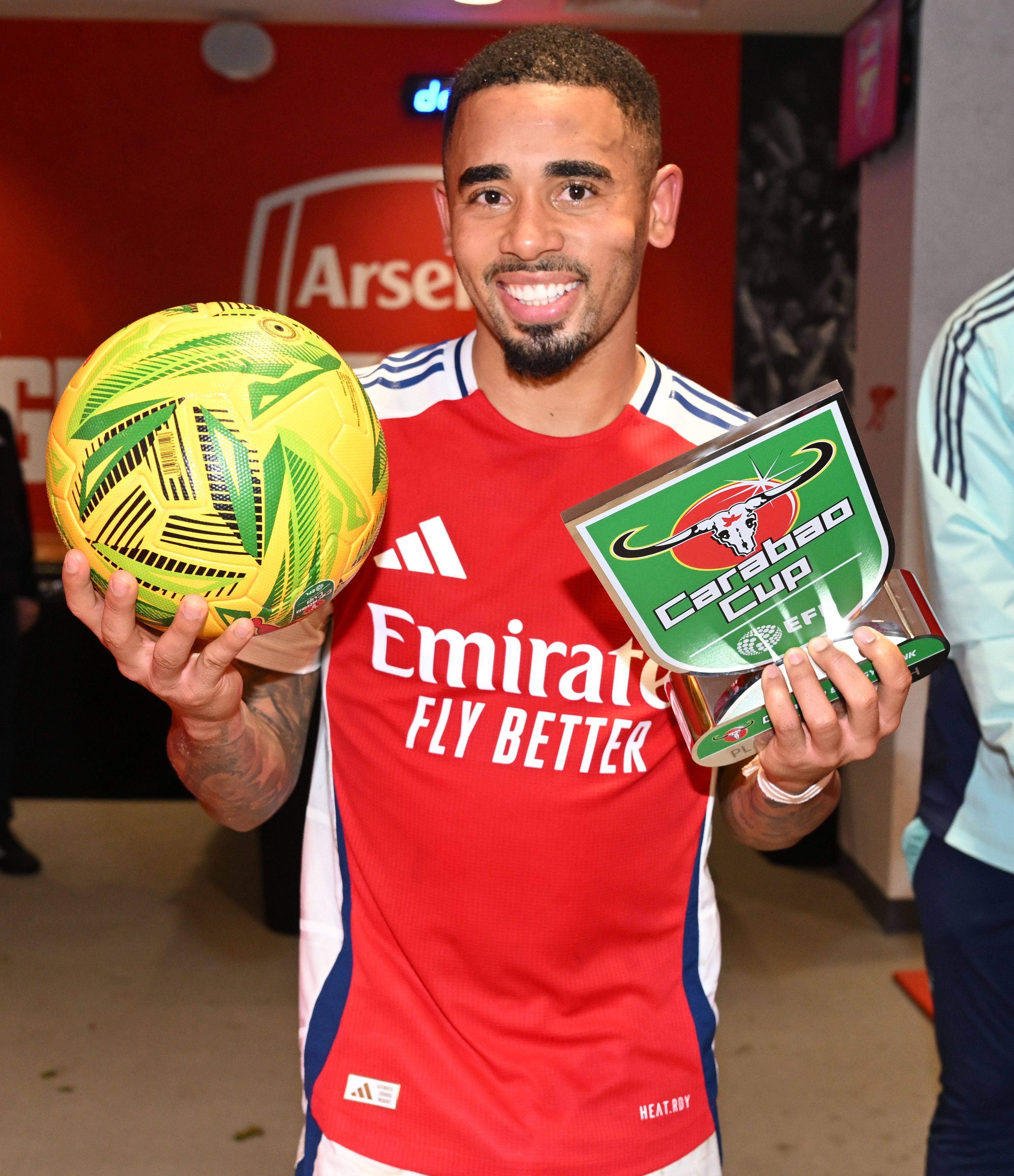

A bigger change in his life and career was to follow soon though. In January 2017 Gabby signed for Pep Guardiola’s Manchester City – the first time he had ever set foot in England.
“It was completely different,” he smiles. “I finished my season with Palmeiras in Brazil, we won the league for the first time in 22 years and I had a very good season. I scored about 21 goals that year, but I missed a lot of games because I was getting kicked a lot! The referees were not giving fouls, so I would complain, and I got a lot of yellow cards for complaining. There you get suspended for three yellow cards, so I was getting a lot of suspensions. It’s not an excuse – it’s true.
“So I didn’t score a lot of goals, but the ones I did score were important. Then I arrived here in England in January, and everything was completely different for me. In Brazil it was 25 degrees, and in England it was minus two and got dark at 3 o’clock in the afternoon! Also I didn’t speak English at the time, I didn’t know the food – I was like, ‘What am I doing here? I want to go home!’ Also the papers to come through from Palmeiras were delayed, so I had to train by myself, I was freezing – I just wanted to go.
“I had my mum, my brother and two friends with me, but it was certainly an adaptation period. Looking back now though, it was good for me. As soon as I started to train with the team, I played the games as well, and then I scored and everything was good. It was an amazing experience for me to play in the Premier League for the first time – it was difficult but it was important.”
But in keeping with the rest of his career to that point, his talent and determination got him through. He scored seven times from just 10 Premier League appearances in his first half-season – English football clearly suited him.
“It took about a month – January into February – to settle in,” he reveals. “Then I came into the team, I scored against Tottenham, but it was offside. But then I said ‘OK, I can do it.’ I was training well, then I started to play and started to score, and I was happy to stay. It was still hard, not speaking the language, living in a hotel – and where was the sunshine?! It’s 3.30 in the afternoon and it’s dark! But I can’t complain.
"At that time I was only 19, so imagine that at 19. It was a big difference for me. But I kept my head strong. The club helped me a lot, and also I had good advice from my mum, my family, friends, and I made good choices in my life too and stayed strong.”
"It will always be in my DNA, my Brazilian style, but you adapt it for what the club needs"
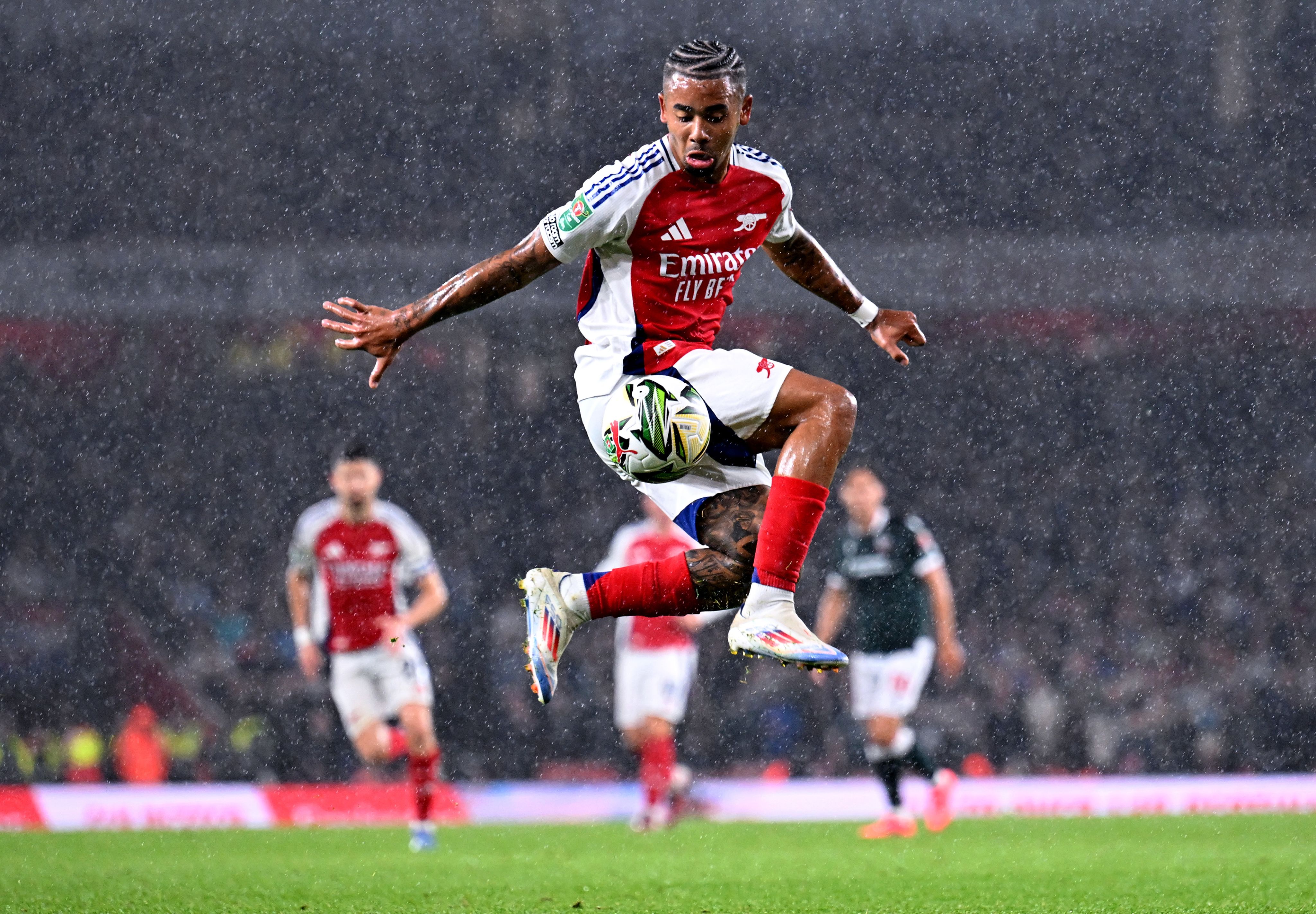

Looking back now, nine years later, how much did Gabby have to change his approach on the pitch to thrive in the Premier League? Did the physical approach surprise him, for example?
“No, I was getting kicked less than in Brazil!” he laughs, “Look, I come from Brazil, I’m Brazilian, I have the Brazilian style. I arrived at 19 and that’s how I played. But I remember soon after coming to England, we played a game that we won 2-1, I scored two.
"But during the game I received the ball, controlled it and then flicked it up. But Yaya Toure turned to me and said, ‘Gabby, play simple, here we play simple!’ I thought OK, I can do that, and I was so happy that he could come to me and say that, because it really helped a lot to know what it was like in England. It’s different to Brazil.
“From then I didn’t try things just for show, I just tried to do things if it was effective and helped the team. If it helped us go forward, I would do it, but not like in Brazil when we used to do things like that in a game just for fun. That helped me a lot.”
Gabby adds that he still watches clips of him playing as a youngster back in Brazil, and says he still recognises his style, but that plenty has changed as his game evolved over the years.
“I can’t compare, because it’s different. I was much younger,” he says. “ For example, I think I was faster when I was 15. I was more skinny, but now I am stronger, so you can’t compare. But obviously my style of play is the same I think, but with more experience I understand the game more.
"But you still have to play – take the ball, pass the ball, take players on and be yourself. But you can still be a team player. I was playing one way in Brazil and of course things change when you move club. It will always be in my DNA, my Brazilian style, but you adapt it for what the club needs.
“I think it’s just normal. In life if you want to reach the top, you have to understand that you have to follow structures and tactics. But at the same time, I think if you can mix that, and play with freedom, that will be a great thing. You don’t want to lose what your qualities are. Managers know that too. They want players to follow their tactics, but they also know what the player’s own qualities are.”
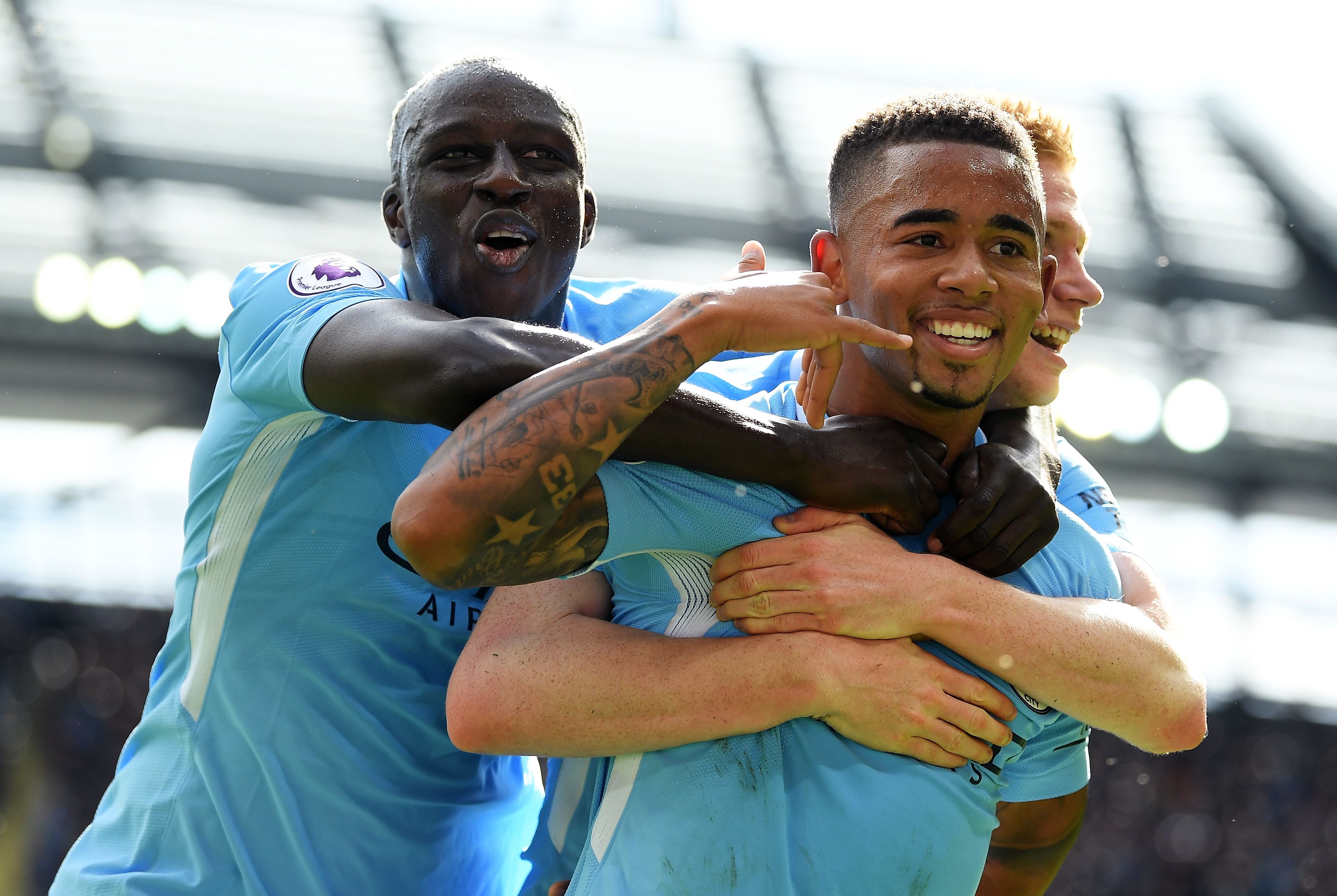
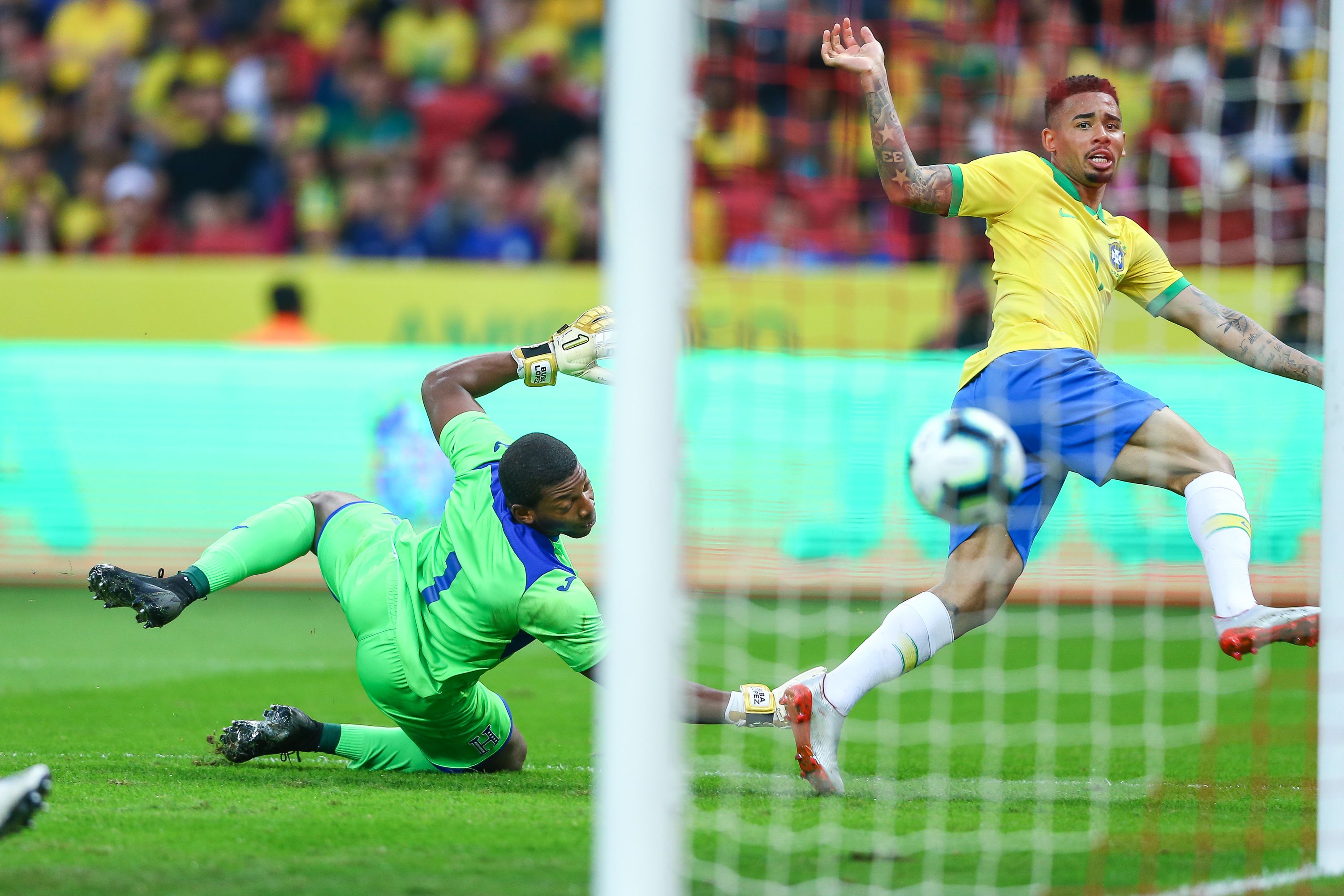
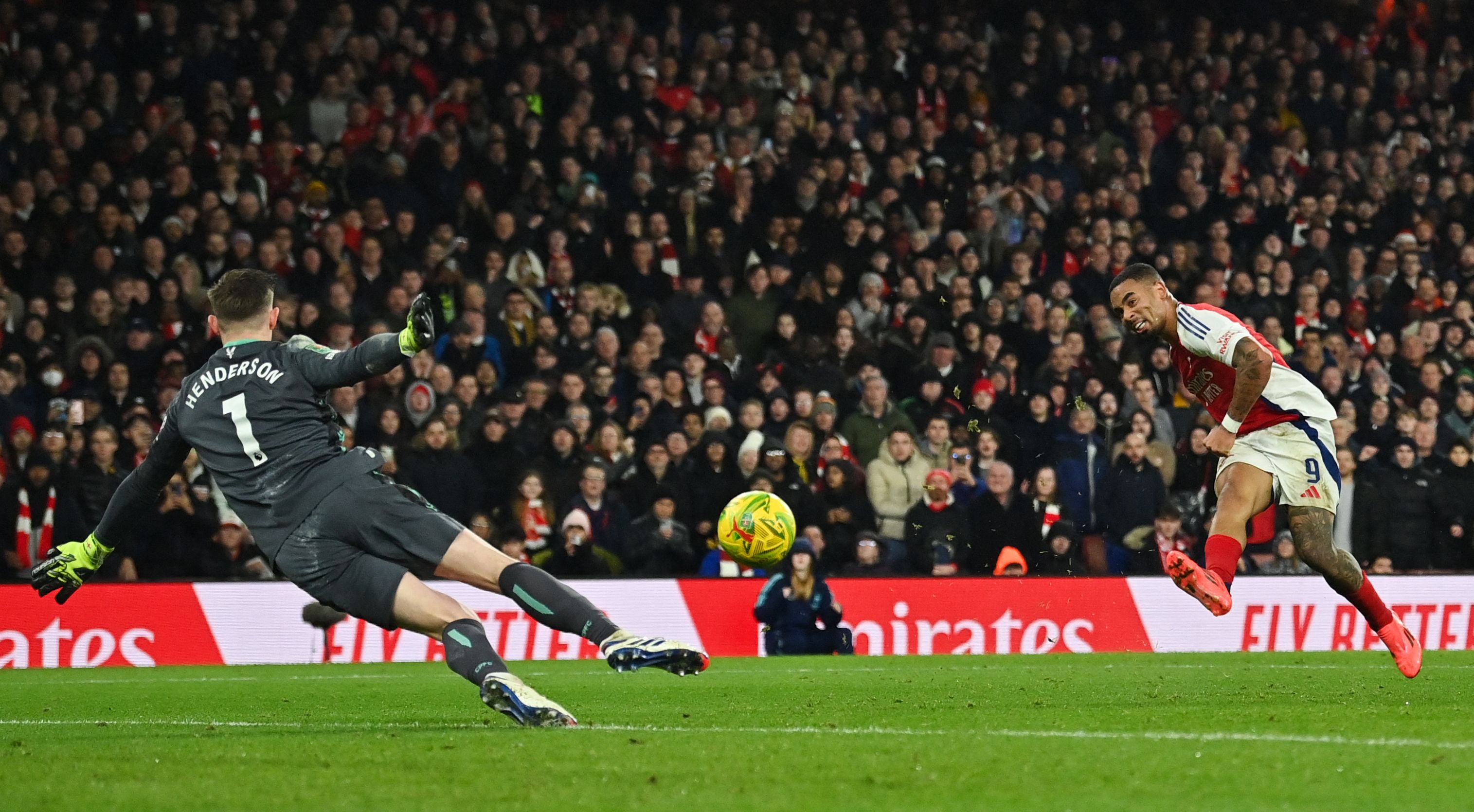
So what will be the next evolution in Gabby’s career? Can he imagine going into coaching himself after his playing days? And if so, would he be the type to encourage the freedom of expression in his players that he himself enjoys?
“I don’t think I would be a good coach,” he admits. “Obviously with the coaches I’ve worked with in my career, maybe I could be a coach, because I’ve learned a lot. But at the same time I don’t know if I could do it. I don’t think so. There are a lot of demands, so I don’t think so, but who knows?
“I don’t really want to do my qualifications yet, but it’s still early. I’m 27, but obviously you have to prepare yourself because a footballer’s career goes so fast. I think I have at least 10 more years, so at the moment I don’t think I will be a coach.
"Maybe if Jorginho or somebody in future comes to me and says, ‘Please I want you to be my assistant!’ maybe I’ll change my mind, but right now it’s not for me.”
More from our dressing room













